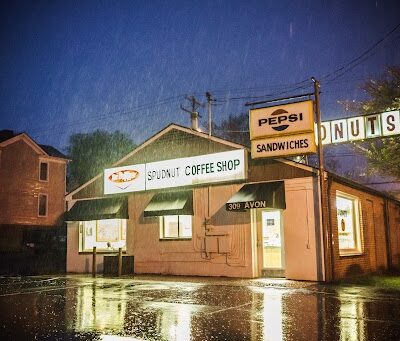The owner of the Landmark Hotel started 2011 with a few major setbacks. In January, a Georgia court ruled in favor of Specialty Finance Group (SFG), a subsidiary of Silverton Bank, which loaned Halsey Minor a total $23.6 million to construct the hotel in 2008. SFG filed suit to reclaim $10.5 million of the loan; Minor called the decision a “travesty of justice,” and announced his intention to appeal. Then, in February, Minor filed for bankruptcy to prevent foreclosure on Carter’s Grove, his Colonial Williamsburg mansion.
|
Last year, Landmark Hotel owner Halsey Minor topped California’s list of delinquent taxpayers, at more than $13 million owed. Now, Minor tops Charlottesville’s debtors list. |
Now Minor, who did not return multiple requests for comment, faces a new setback. According to city staff, Minor owes Charlottesville a whopping $84,351.68 in real estate taxes. Jason Vandever, chief deputy treasurer, tells C-VILLE that Minor Family Hotels, LLC, is the city’s highest debtor. The taxes, says Vandever, have been delinquent since June 2009—almost two years after Minor claimed ownership of the Landmark property.
Minor’s tax payment would not be without its uses—especially considering the current city budget, up 1.55 percent compared to Fiscal Year 2011. The $84,351.68 that Minor owes the city is nearly double the city’s increased commitment to the local SPCA. The proposed budget also includes a $36,361 increase in city funds to the Summer Youth Internship Program, which will help the program offer an additional 40 youngsters exposure to local workplaces. Were it used solely for internship funds, Minor’s taxes would pay for 92 new interns.
Where else would Minor’s money come in handy? The overdue taxes could more than cover the proposed $15,000 cut to the Council Priority Initiatives pool, which is typically used to launch new programs such as the Dialogue on Race. In fact, the proposed budget includes a $90,000 commitment to the Dialogue on Race—funds that would extend the initiative for one year by supporting a program coordinator and funding projects selected by the Dialogue’s steering committee. The city also cut $72,746 in “pupil transportation expenses” by eliminating two part-time bus driver jobs, replacing fewer school buses and extending the lifeline of each bus from 10 to 12 years.
The Treasurer’s office tries to make contact with delinquent taxpayers “through notices, e-mails, or phone calls in an effort to receive payment or structure a repayment plan,” says Vandever in an e-mail. “If the taxes still remain unpaid, then collective action is initiated including salary liens, bank liens, rent liens, state refund set-offs and DMV [Department of Motor Vehicles] registration withholding. For real estate this eventually culminates in a judicial sale”—a foreclosure.
However, the Landmark Hotel won’t face a foreclosure sale. In September, Minor filed for bankruptcy to consolidate multiple legal actions concerning the hotel. The filing, says city spokesman Ric Barrick, makes the property ineligible for such a sale.
Although collective action against tax delinquents can begin a few months from the delinquency status, the city works with debtors on repayment plans that could last up to one year. Through payment plans and communication, Vandever says the treasurer’s office has a collection rate of more than 98 percent.
“Even in a case where a taxpayer has declared bankruptcy, real estate taxes are not discharged, and will be eventually collected by the City of Charlottesville,” says Vandever.
/Halsey_Minor.jpg)





